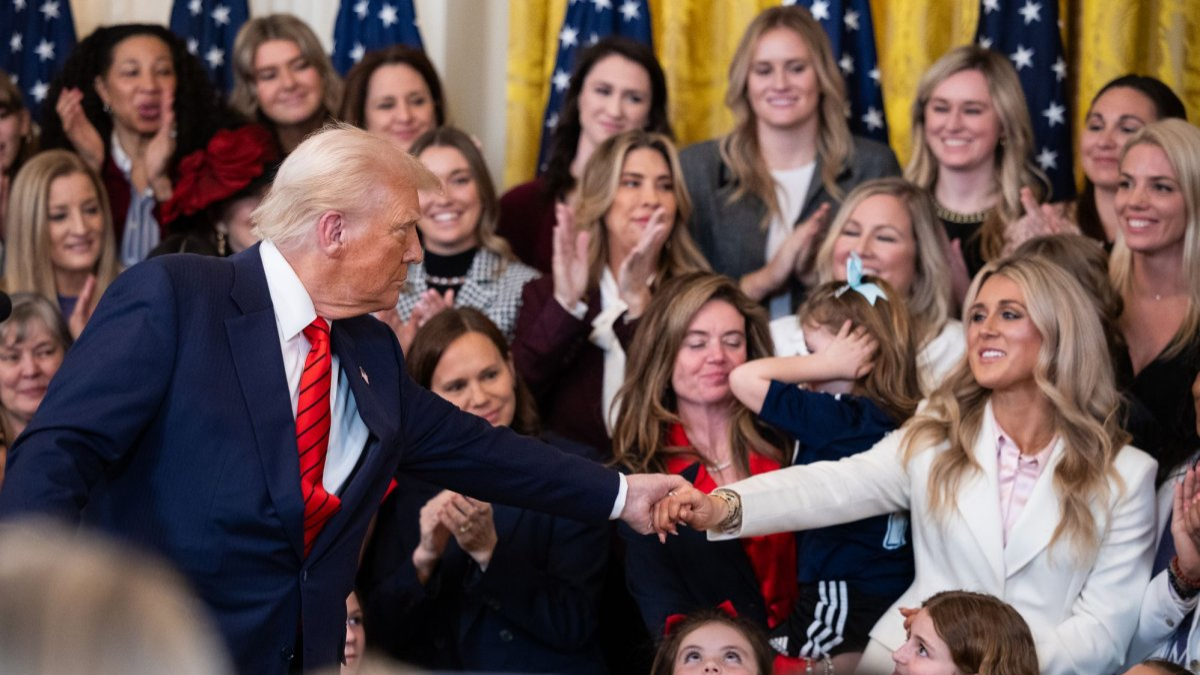Maine Governor Janet Mills and President Donald Trump clashed during a high-stakes White House meeting on Friday over the issue of transgender athletes in women’s sports. The confrontation centered on Trump’s executive order—aimed at banning transgender girls and women from competing on female teams—and his threat to cut federal funding from states that defy his mandate.
What Happened?
- Who: President Donald Trump and Maine Governor Janet Mills
- What: A heated exchange over transgender athlete policies
- When: Friday, February 21, 2025
- Where: White House State Dining Room
- Why: Trump’s executive order restricts transgender participation in women’s sports, and Mills maintains that state laws protect all students’ rights
During his address to the nation’s governors, Trump singled out Mills with a pointed question:
“Are you not going to comply with it?”
In response, Governor Mills firmly stated, “I’m complying with state and federal laws.” Trump retorted, “We are the federal law,” and warned, “You better do it because you’re not going to get any federal funding at all if you don’t.” Mills then declared, “We’ll see you in court.” This dramatic exchange underscores the ongoing national debate over how to balance fairness in sports with the rights of transgender individuals.
Key Points and Implications
- Federal Funding Threats: Trump’s order ties federal education funds to compliance with his policy, aiming to pressure states into aligning with his view that only athletes assigned female at birth should compete on women’s teams.
- Legal Challenges Ahead: Mills’ defiant stance suggests that Maine will fight the executive order in court, reinforcing state-level protections for transgender youth under the Minnesota and other state anti-discrimination laws.
- National Impact: Although the number of transgender athletes is small, the debate has become a flashpoint in the broader culture war over transgender rights, with implications for high school, collegiate, and even Olympic sports.
Expert Opinions
Dr. Emily Santos, a sports law expert at the University of New England, commented,
“This clash is not just about one policy—it’s a microcosm of the national debate on transgender rights and federal overreach. States like Maine are asserting their authority to protect their residents under state law, even in the face of presidential orders.”
Similarly, advocacy group spokesperson Jordan Lee stated,
“Governor Mills’ resolve sends a strong message: our states will not allow political agendas to dictate the rights and dignity of transgender youth.”
Related Articles
- Trump’s Latest Executive Order and Its Impact on School Funding
- How Transgender Athlete Policies Are Shaping College Sports
- Legal Battles Over Transgender Rights in Sports Continue to Escalate
Visuals to Enhance the Story
- High-Resolution Image of the White House State Dining Room
Alt Text: “White House State Dining Room where President Trump and Governor Mills clashed over transgender athlete policies.” - Photo of Governor Janet Mills at a Public Event
Alt Text: “Maine Governor Janet Mills speaking at a press conference on transgender rights.” - Infographic on Federal Funding and Trans Athlete Policies
Alt Text: “Infographic detailing the link between federal funding and compliance with transgender athlete policies in U.S. schools.”
Why This Matters Now
This exchange marks a significant moment in the ongoing national debate over transgender rights in sports. With federal funding at stake and legal battles imminent, the outcome of this clash could redefine how states manage anti-discrimination protections and sports eligibility criteria nationwide. The confrontation not only tests the limits of presidential power but also sets the stage for future legal and cultural debates.
Author Bio:
Alex Mercer is an award-winning journalist with over 15 years of experience covering politics and social issues. Mercer specializes in in-depth analyses of policy debates and their impact on communities across the United States.
What do you think? Will states successfully resist federal mandates on transgender athlete policies, or will Trump’s executive orders reshape the landscape of sports and education? Share your thoughts in the comments below.
